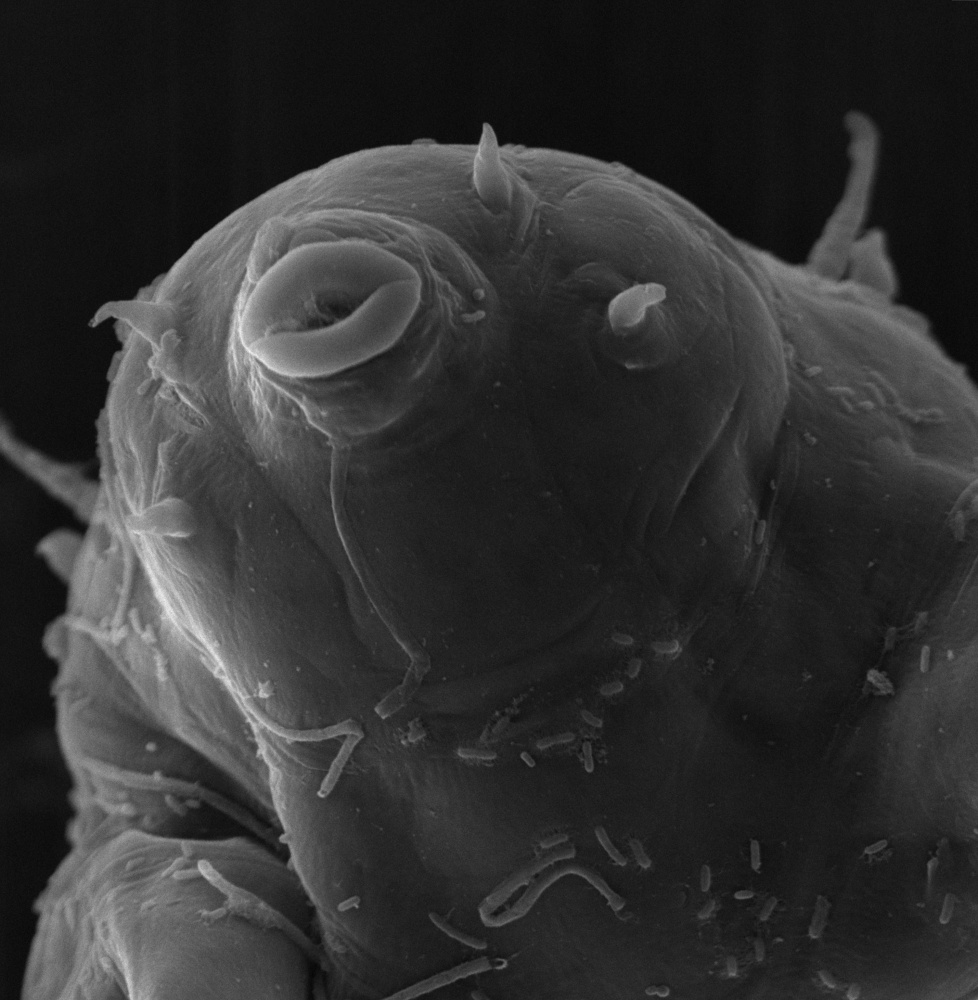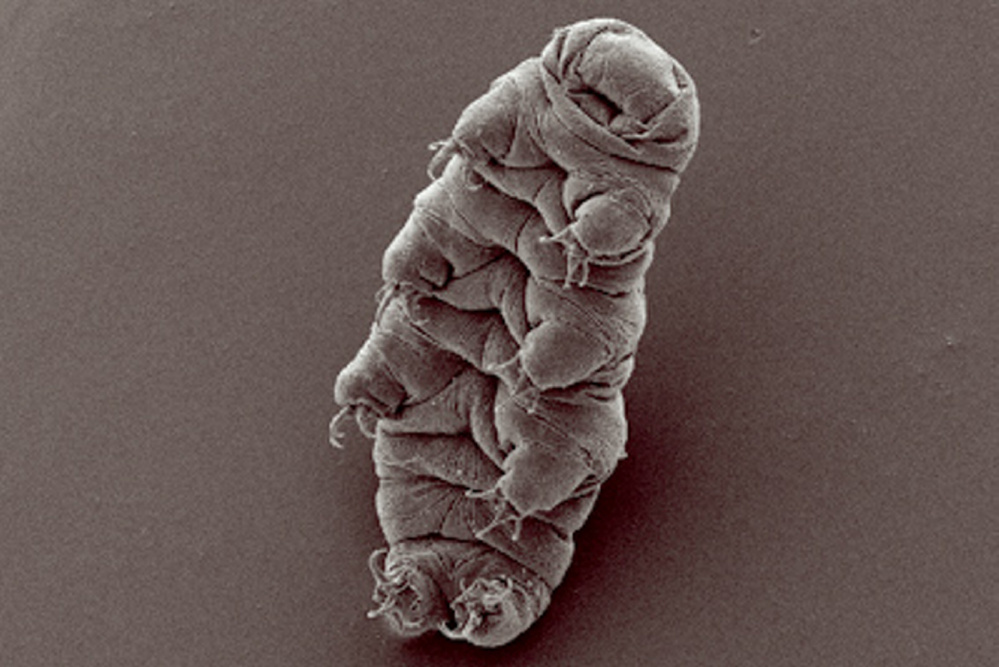A new species of tardigrade, a microscopic animal known for its cuddly appearance and ability to survive in extreme conditions, has been discovered on an island off the coast of Maine by a team of researchers from Unity College.
The discovery of Echiniscoides Wyethi has brought worldwide attention to the college – known for its commitment to educating the next generation of environmentalists – and to the professor who led the mission.
Dr. Emma Perry and several of her students collected the tardigrades, commonly known as water bears, from Allen Island, a 450-acre island off the coast of Knox County that is owned by the family of artist Andrew Wyeth. Perry, who is a professor of marine biology at Unity College’s Center for Biodiversity, named the micro-animal after the Wyeth family.
Perry’s findings have been published in a scientific journal and she presented her research at an international conference in Italy last summer.
Perry said tardigrades are distinctive eight-legged invertebrates that look, at least under a microscope, almost cute enough to touch. The only problem with touching tardigrades is their size. They measure on average 0.039 of an inch, Perry said.
“They are like a gummy bear with an extra set of legs,” she said of looking at the animal under a microscope.
Tardigrades can be found all over the world and can live in some of the harshest environments known to man. They’ve been discovered living in moss and lichens, bubbling hot springs, Antarctic ice, deep-sea trenches, and even on Himalayan mountaintops.
Perry said that tardigrades were sent into space in 2007 with the European Space Agency shuttle. During the mission, the organism was exposed to the vacuum of space and to radiation.
Perry said tardigrades can curtail their metabolism while shrinking or curling up, going for extended periods without food, water or oxygen. When the tardigrades returned to earth, scientists poured a few drops of water on the them and they sprang back to life.
“To quote ‘Star Trek,’ it would be like going into stasis,” Perry said. “They can completely shut down their metabolism.”
Perry suspected she had discovered a new species in May 2014 after collecting samples from barnacles she and her team found on Allen Island’s beaches. Students Chaz James, Jesse May, Ashleigh Munton and William Stoker helped her collect and analyze the samples taken from the island.
Under a microscope, this new creature had a much longer and more flexible buccal tube (similar to a human esophagus) than other species of tardigrades.
After conferring with her mentor, Dr. Bruce Miller, a tardigrade expert at Baker University in Kansas, and documenting her discovery, she published a paper on her findings in The Biological Society of Washington, an organization founded in 1880 to encourage the study of the biological sciences.
In June, Perry went to Modena, Italy, to present her research to the 13th annual International Symposium on Tardigrada.
Excitement within scientific circles has been growing for years around these tiny animals.
It led to creation of the The International Society of Tardigrade Hunters, which was founded in 2015 to advance the study of the water bear. Dr. Thomas C. Boothby, a postdoctoral researcher at the University of North Carolina, is the Society’s founder and president.
Boothby said there are more than 1,100 known species of tardigrades.
“Since their discovery some 250 years ago, tardigrades have fascinated scientists. Today, researchers are applying both traditional and cutting-edge techniques to study the biology of these amazing creatures,” Boothby said in an email.
The first tardigrade recorded in North America was discovered in 1873 by a minister in New Gloucester, Maine, named Rev. W.R. Cross.
“Understanding the biology of tardigrades has and will continue to make significant impacts on our understanding of animal physiology, evolution, development and ecology,” Boothby added.
Boothby said the scientific community has taken note of Perry’s discovery.
“Every time we find a new tardigrade we have another opportunity to learn something new about their biology and the world we live in,” Boothby said. “Beyond identifying this new species, Dr. Perry’s discovery sheds light on the fact that there are likely many undiscovered species of tardigrades whose identification would be a boon to the research community.”
Unity College issued a statement describing Perry’s discovery. The college’s statement said tardigrade research is important because it could help with understanding biodiversity loss, global warming and other environmental issues.
“Why care? … Just because we don’t know about them doesn’t mean they are not important,” Perry said in the statement about her discovery.
Send questions/comments to the editors.




